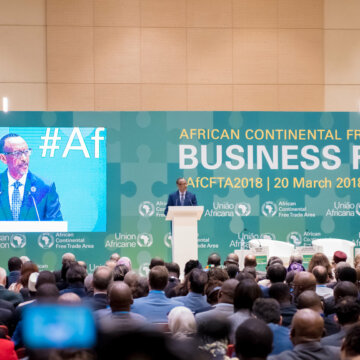- About
- Topics
- Picks
- Audio
- Story
- In-Depth
- Opinion
- News
- Donate
- Signup for our newsletterOur Editors' Best Picks.Send
Read, Debate: Engage.
| topic: | Women's rights |
|---|---|
| editor: | Bob Koigi |
The largest free trade area after the World Trade Organization, the African Continental Free Trade Area, AfCFTA, is opening up Africa to a world of opportunities with a market that has over 1.2 billion people and $3 trillion in combined GDP promising economic empowerment, addressing perennial poverty and helping the African Union in its pursuit of the historic Agenda 2063.
Yet, as the iconic agreement now comes into force and liberalisation of the borders takes effect and reinforces regional integration, the place and space of women in actualising the trade pact hasn’t been given the attention it deserves.
The informal sector in the continent constitutes 85 percent of total economic activity with nine out of ten working women in Africa being in this area whether by being self-employed or working in a family business.
Women represent the face of informal cross-border trade accounting for about 70 percent of informal cross-border traders in Africa. Their businesses are the most prone to shocks like market upheavals and, recently, the Covid-19 pandemic.
For AfCFTA to have real, tangible and sustainable results, women must be at the driving seat of its implementation. Their voices and concerns, especially those in the informal sector, must be embraced in decision and policy making.
Investing in training, information sharing and strengthening women’s enterprises through robust value chains will enhance the benefits that come with the pact and bolster the treaty’s envisioned impact on creation of jobs, improvement of livelihoods, boosting of economies and creating a buffer for future shocks.
Image by Kigali Today
